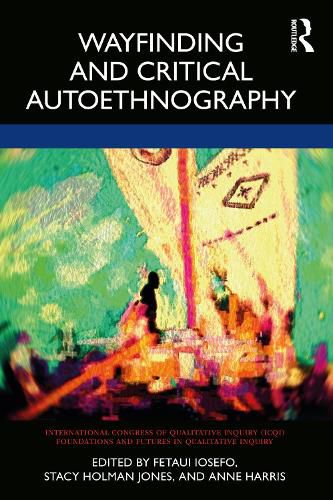Readings Newsletter
Become a Readings Member to make your shopping experience even easier.
Sign in or sign up for free!
You’re not far away from qualifying for FREE standard shipping within Australia
You’ve qualified for FREE standard shipping within Australia
The cart is loading…






Wayfinding and Critical Autoethnography is the first critical autoethnography compilation from the global south, bringing together indigenous, non-indigenous, Pasifika, and other diverse voices which expand established understandings of autoethnography as a critical, creative methodology. The book centres around the traditional practice of ‘wayfinding’ as a Pacific indigenous way of being and knowing, and this volume manifests traditional knowledges, genealogies, and intercultural activist voices through critical autoethnography.
The chapters in the collection reflect critical autoethnographic journeys that explore key issues such as space/place belonging, decolonizing the academy, institutional racism, neoliberalism, gender inequity, activism, and education reform. This book will be a valuable teaching and research resource for researchers and students in a wide range of disciplines and contexts. For those interested in expanding their cultural, personal, and scholarly knowledge of the global south, this volume foregrounds the vast array of traditional knowledges and the ways in which they are changing academic spaces and knowledge creation through braiding old and new.
This volume is unique and timely in its ability to highlight the ways in which indigenous and allied voices from the diverse global south demonstrate the ways in which the onto-epistemologies of diverse cultures, and the work of critical autoethnography, function as parallel, and mutually informing, projects.
$9.00 standard shipping within Australia
FREE standard shipping within Australia for orders over $100.00
Express & International shipping calculated at checkout
Wayfinding and Critical Autoethnography is the first critical autoethnography compilation from the global south, bringing together indigenous, non-indigenous, Pasifika, and other diverse voices which expand established understandings of autoethnography as a critical, creative methodology. The book centres around the traditional practice of ‘wayfinding’ as a Pacific indigenous way of being and knowing, and this volume manifests traditional knowledges, genealogies, and intercultural activist voices through critical autoethnography.
The chapters in the collection reflect critical autoethnographic journeys that explore key issues such as space/place belonging, decolonizing the academy, institutional racism, neoliberalism, gender inequity, activism, and education reform. This book will be a valuable teaching and research resource for researchers and students in a wide range of disciplines and contexts. For those interested in expanding their cultural, personal, and scholarly knowledge of the global south, this volume foregrounds the vast array of traditional knowledges and the ways in which they are changing academic spaces and knowledge creation through braiding old and new.
This volume is unique and timely in its ability to highlight the ways in which indigenous and allied voices from the diverse global south demonstrate the ways in which the onto-epistemologies of diverse cultures, and the work of critical autoethnography, function as parallel, and mutually informing, projects.